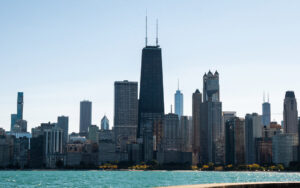By Gabe B.,7th grade, Krieger Schechter Day School of Chizuk Amuno Congregation
Religion is one of many things that makes each of us diverse. However, what if all of a sudden the right to practice and display religion at work or on the bus was deemed illegal? That is what happened in the Canadian province of Quebec in March.
A new Quebec law forbids newly hired public employees from wearing religious garb, such as headscarves or turbans at work and when using public services. Those hired before March 2019 are not affected by this law unless they are promoted to a new public position.
According to The New York Times, François Legault, a right-leaning Quebec premier, called this bill “a necessary measure to ensure the separation between religion and state in an abidingly secular province.” Quebec’s new bill restricting religious freedom has raised eyebrows. According to Stephen Gordon, a social studies teacher at Krieger Schechter Day School, this bill “will have a negative impact on diversity.”
When the freedoms of religion and expression are denied to citizens, additional freedoms can suddenly be revoked, too. “Once you begin to discriminate against people, hate crimes begin to come up; people start expressing themselves negatively against others who are different from them,” Gordon explained. In other words, intolerance leads to hate and forms of discrimination.
Some people raise questions and suspicion about the bill. “Jewish men are supposed to wear a kippah as a part of our religion. Does that mean that they can’t have government jobs or be a policeman? Does that basically preclude them from having jobs like that?” wondered Ellen Friedman, a Jewish history teacher at KSDS.
“Generally, you should let people have the freedom to express themselves even if it might make other people feel uncomfortable. People should have that right,” said Micah B, a sixth-grader at KSDS. According to Al-Jazeera News, public sector employees who were hired after March 28 of 2019 are not allowed to wear religious garb. However, the employee could wear religious items if hired before March 28, unless promoted to a different position. Furthermore, according to the Chicago Tribune, the law prohibits people from wearing religious face coverings while using public transit. This, according to the law, is a matter of public safety.
It is difficult to image a democratic country forbidding its citizens from wearing religious garb in public spaces. If this happened in the United States, according to Gordon, “I would write to my congressman. I will let them know how I feel. I would probably talk to my friends and spread the word because these representatives are supposed to be our voice.”
This new law in Quebec has caused lots of anger between religious communities locally and in certain religious communities in America. People are hoping the bill will be vetoed. However, for now, people are protesting and doing what they can to be heard.





